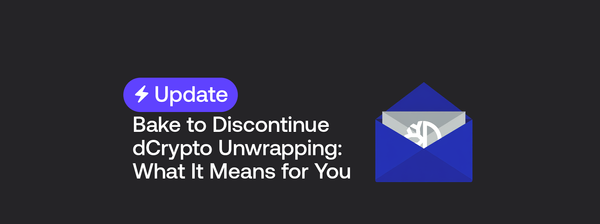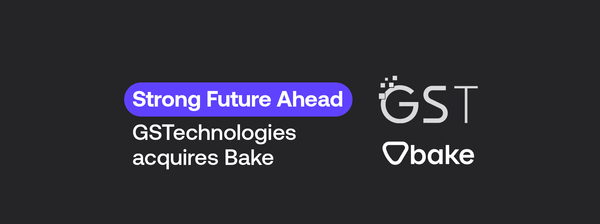How To Use Crypto As A Hedge Against Inflation
As global inflation continues to climb, an increasing number of investors are utilizing crypto and decentralized finance (DeFi) as a strategic countermeasure.
Their assumption is that DeFi can be utilized to hedge the impacts of inflation and the ever-rising cost of living.
The question is, are they right to assume so?
In this article, we explore why DeFi is touted by many as a tool for combating inflation, as well as the opportunities it creates for investors during such periods.
What is Inflation?
Inflation is a term that describes the broad rise in the price of goods and services within an economy.
It is the representation of the decline in a currency's purchasing power. Each unit of currency can buy fewer and fewer items over time, diminishing the average person's purchasing power.
However, inflation goes beyond simply affecting your grocery bill. It has a far-reaching impact on the financial realm.
As inflation reduces the actual worth of money over time, the returns on your investments can also be affected. This decrease in investment value can cause significant worry for investors and lead to hasty and poorly informed decisions.
Inflation is a real-world factor that significantly impacts everyday people's financial health, future planning, and peace of mind. Finding ways to effectively manage and counteract inflation is absolutely vital.
How Crypto Hedges Inflation
Cryptocurrencies are generally considered inflation-resistant assets - particularly Bitcoin (BTC).
Though there are many causes of inflation, many agree that increasing the money supply (printing excessive amounts of fiat money) is a major cause of inflationary pressure.
As a result, the value of fiat money decreases, and the prices of goods and services go up.
So, how are cryptocurrencies different?
Supply Caps
The creator/s of Bitcoin understood the issue and looked to make Bitcoin a hedge against inflation by enforcing a supply cap.
Bitcoin has a hard cap of 21 million — once that number is reached, no more Bitcoin will be produced or mined again.
Many cryptocurrencies created since Bitcoin have followed a similar path — introducing a supply cap or inflation limit into their design.
Decentralization
The decentralized nature of most cryptocurrencies also comes into play when combating inflation. Unlike fiat money, there is no central authority that can just “flip a switch” and produce more units if they want to.
The issuance of Bitcoin, for example, is determined by code - not by market events or central banks printing more money.
DeFi as a Hedge Against Inflation
DeFi takes the anti-inflationary ideals introduced by crypto to the next level.
Let’s start with the basics:
DeFi Products Are Decentralized
As with cryptocurrencies, no central authority can control or tamper with DeFi services and products.
Bake, for example, does not control or have authority over the DeFi services provided on its platform. Since Bake follows the principal-agent model, it simply aggregates DeFi services and acts as a middleman.
Bake users remain in full control of their funds at all times. There are no required fixed terms, minimum deposits, or hidden fees. User funds are kept separate from the company’s funds — further proving your total ownership over your assets.
Find out more about Bake’s commitment to security and transparency.
DeFi Is Easily Accessible
Traditional finance (TradFi) has failed to provide the public with easily accessible options to combat inflation.
With DeFi, this is no longer an issue. DeFi is accessible to anyone in the world with an internet connection. No sign-ups or credit checks, just create a crypto wallet, and you’re ready to go.
Convert Fiat Money Into a Stable Asset
DeFi allows investors to convert fiat money into disinflationary cryptocurrencies such as Bitcoin as well as into stablecoins. Stablecoins represent a distinct type of cryptocurrency whose value is pegged to a stable asset, often a reserve of traditional fiat currencies like the U.S. Dollar or Euro.
This may seem counter-intuitive, as these fiat currencies are causing the inflation that crypto is trying to combat. But for people living in nations with extremely high inflation, such as Argentina or Turkey, being able to use DeFi to convert their savings into stablecoins is a safe haven.
Furthermore, it is possible to generate yields using stablecoins while avoiding the volatility of the crypto market. Bake users can deposit USD Coin (USDC) or Tether (USDT) and allocate them to Bake’s Earn services to generate cash flow.
High Yields and Returns
Another reason why TradFi is not a good option for hedging against inflation is the low interest rates and returns they offer.
In the US, the average bank interest rate for checking accounts is 0.03%, the average savings account rate is 0.06%, and the average money market account interest rate is 0.09%.
DeFi offers much higher yields on average. Although, due to its decentralized nature, these yields can fluctuate over time.
Fighting Inflation with Bake
At Bake, we enable users to counter inflation's perils through multiple effective investment strategies, including portfolio diversification and dollar cost averaging.
Inflation FIghters Smart Bundle
Bake’s curated “Inflation Fighters” Smart Bundle comprises two key assets: PAX Gold (PAXG), a digital currency pegged to the price of gold, and bitcoin (BTC), the largest cryptocurrency by market cap.
The bundle is designed to protect your money against inflation by combining the trust and stability of gold (PAXG) with BTC’s potential for high returns.
It is specifically optimized to preserve your money's purchasing power over time.
Strategy Diversification
Bake gives you the opportunity to diversify not only among different cryptocurrencies but also among different investment approaches such as Staking, Liquidity Mining, and YieldVault.
When investing through certain Bake Smart Bundles, your assets will be automatically allocated to an earning strategy to optimize your yields.
Dollar Cost Averaging (DCA)
Dollar Cost Averaging (DCA) involves investing a fixed sum into a particular asset at regular intervals, regardless of its price at the time.
This strategy can help mitigate the impact of short-term price volatility and reduce the risk of making a large investment at an inopportune time.
You can use Bake’s Recurring Buys feature to DCA directly into Smart Bundles. In just a couple of clicks, you can set up monthly/weekly purchases into an optimized pool of assets.

DISCLAIMER: Please note that the information on this blog and in any articles posted on this blog is for general information only and should not be relied upon as financial advice. Cake Pte. Ltd., Bake, UAB, and its affiliates (the “Cake Group”) are not licensed financial advisers. You may wish to approach your own independent financial advisor before making any decision to buy, sell or hold any product and/or digital assets mentioned in this blog.
Any views, opinions, references, assertions of fact and/or other statements are not necessarily the views held by the Cake Group. The Cake Group disclaims any liability whatsoever that may arise out of or in connection with such statements. Always do your own research before investing in any financial assets and consult a qualified financial advisor if necessary.




